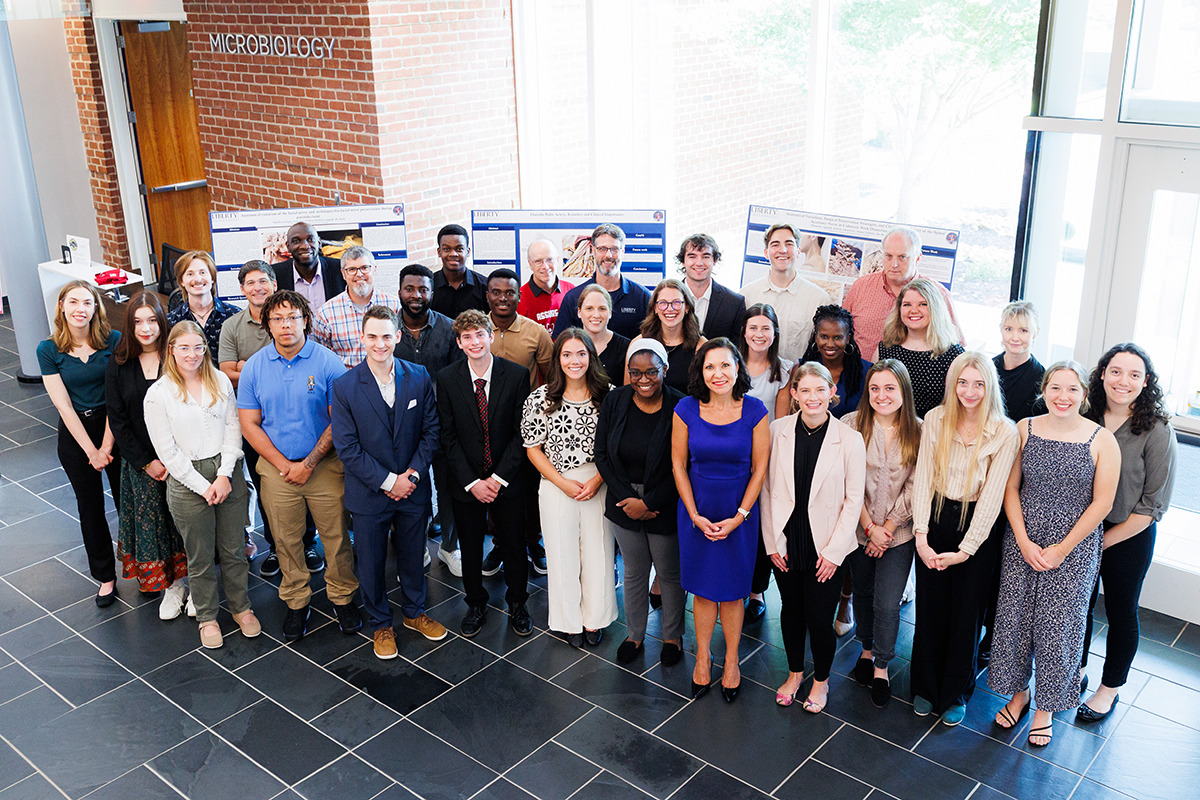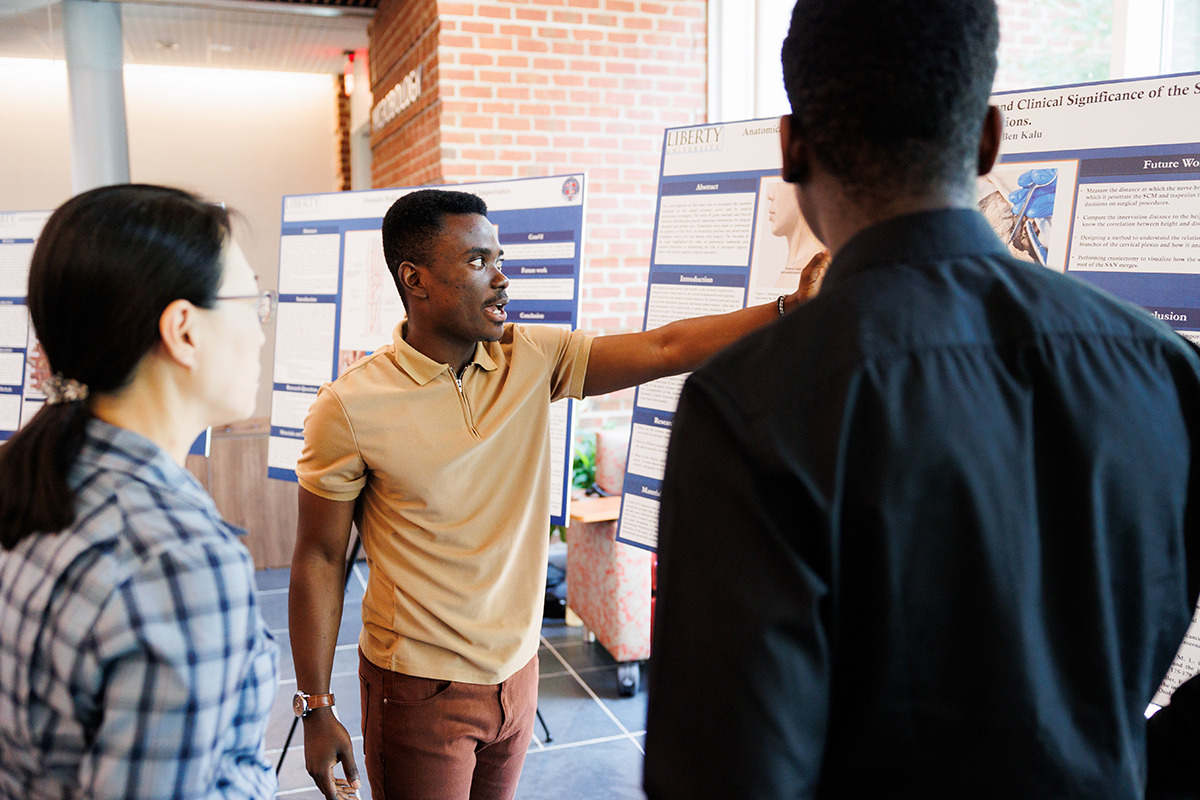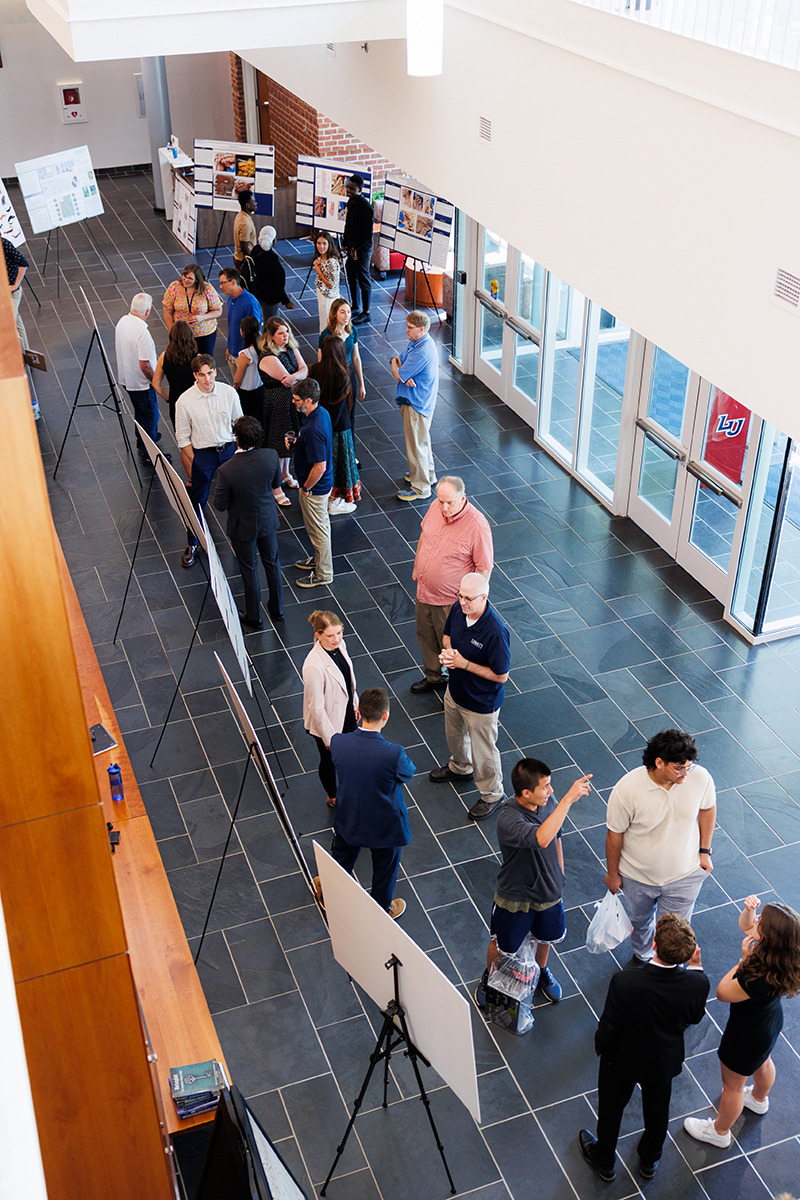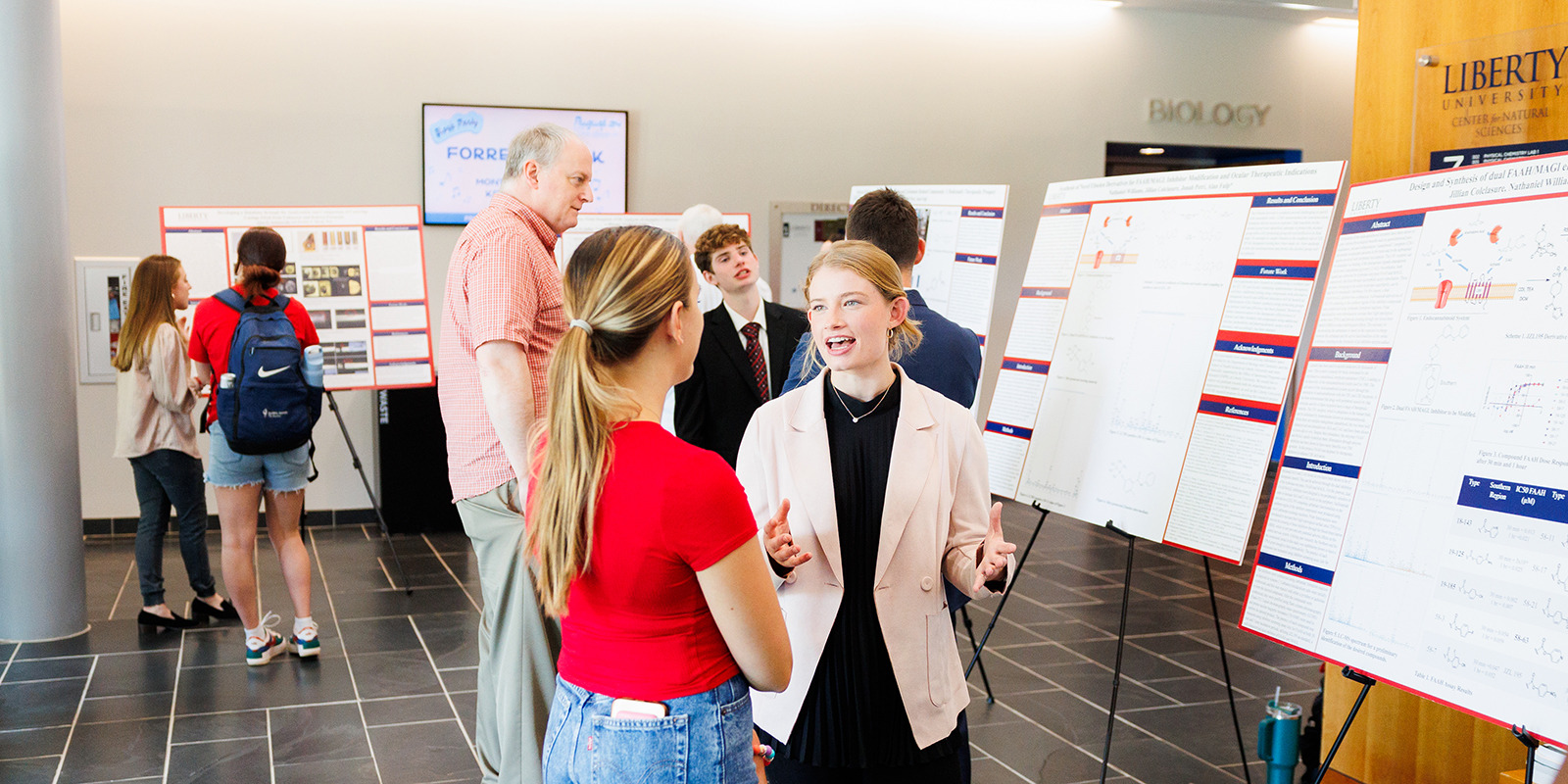
Taking six weeks off from their summer break, students and faculty from Liberty University Department of Biology and Chemistry engaged in research as part of the department’s ASSURE program, an annual summer intensive that introduces many students to research practices and skills.
ASSURE stands for Acquiring Skills for Underrepresented Students in Research Experiences and includes students from demographic groups historically underrepresented in the sciences (such as women, certain ethnic groups, and first-generation college students). Groups of two to three undergraduate students are assigned to a professor for six weeks to conduct new or existing studies and receive valuable mentoring.
“The ASSURE program is intentionally designed to enrich the educational experience of our students, and for many in the program, this is their first venture into research,” said Dr. Heidi DiFrancesca, dean of the School of Health Sciences. “Throughout this experience, students are strengthening their understanding of the content they’ve learned in the classroom while also developing a set of essential skills—critical thinking, problem solving, collaboration, and communication—that will help them be successful both during their time here at LU and in their chosen professions.”
This summer marked the fourth year of the program, consisting of 24 students (21 undergraduate and three graduate) with 10 faculty members. Groups conduct research in a wide variety of disciplines, including biology, ecology, organic chemistry, forensics, anatomy, and more.
 “This program continues to provide Liberty University students with an opportunity to gain research experience that will have long-term impacts on their career development further establishing Liberty University as an effective training ground for highly competitive candidates in the workforce scientific,” said Chemistry Professor Dr. Gregory M. Raner, who has overseen ASSURE since its inception. “Through an intensive 6-week experience working one-on-one with faculty mentors, students gain an appreciation for many of the finer aspects of research such as developing hypotheses, eliminating variables, and establishing appropriate experimental controls, along with data interpretation. As of summer 2022, nearly 70 students have participated in the program, with more than 75% of participants coming from demographic groups underrepresented in the sciences. Tracking data obtained for the 2021-2023 cohorts shows a very high rate of employment and/or acceptance into top-level science graduate programs.”
“This program continues to provide Liberty University students with an opportunity to gain research experience that will have long-term impacts on their career development further establishing Liberty University as an effective training ground for highly competitive candidates in the workforce scientific,” said Chemistry Professor Dr. Gregory M. Raner, who has overseen ASSURE since its inception. “Through an intensive 6-week experience working one-on-one with faculty mentors, students gain an appreciation for many of the finer aspects of research such as developing hypotheses, eliminating variables, and establishing appropriate experimental controls, along with data interpretation. As of summer 2022, nearly 70 students have participated in the program, with more than 75% of participants coming from demographic groups underrepresented in the sciences. Tracking data obtained for the 2021-2023 cohorts shows a very high rate of employment and/or acceptance into top-level science graduate programs.”
Nathaniel Williams, a junior biomedical sciences student, worked under chemistry professor Dr. Alan Fulp to explore the body’s endocannabinoid system, a cellular signaling system that regulates and balances many bodily functions. His group’s research focused on developing a molecular compound that could fight inhibitors in the system and reduce inflammation and pain.
“We wanted to see how far we could take things and how much we could help people by activating these receptors,” Williams said. “There are natural chemicals in the eye that are constantly broken down by the inhibitors, so we wanted to see if we could stop the inhibitors and let the chemicals do what they’re supposed to do and activate the receptors.”
 With a passion for chemistry and hopes of attending medical school, Williams said the ASSURE program was a perfect fit.
With a passion for chemistry and hopes of attending medical school, Williams said the ASSURE program was a perfect fit.
“I wish I had published research before I went, and I love chemistry, and the ASSURE program allowed me to work towards that. I know the professors here very well, and they are very friendly, and I wanted to take advantage of this unique opportunity that I would not otherwise have had. It was a great six weeks.”
Senior forensic science student Alyssa Spillar spent part of the spring semester working under Director of Forensic Science Dr. J. Thomas McClintock and Biology instructor Kristin Mossé, but said the summer research she did through ASSURE was a new, exciting experience. Spillar was able to continue DNA research from the historic Hillsman House in Rice, Va., where McClintock and students have been studying blood samples since 2018 to prove the building served as a Union field hospital during the battle of the great end of the Civil War in Virginia. A chart once used in the house was recently purchased, giving the group more samples to study.
“The goal of the project was to generate DNA profiles from apparently 160-year-old blood stains on the table using typical DNA laboratory procedure,” Spillar said.
She said being involved in the project during the summer brought additional experiences that she didn’t have in the spring.
“I applied to the ASSURE program because I love research and the more research experience I have, the better. I really enjoyed being in a lab or doing research for eight hours a day. It was such an immersive experience.”
ASSURE is funded by a grant from Liberty’s Office of Sponsored Programs and Research and supported by the Office of the Provost.
“The Office of Sponsored Programs and Research is passionate about supporting student research at Liberty University,” said grants administrator Emily Stevens. “As a Christian university, we want to empower students to grow into credible investigators and experts in their fields by supporting the pursuit of knowledge.”
